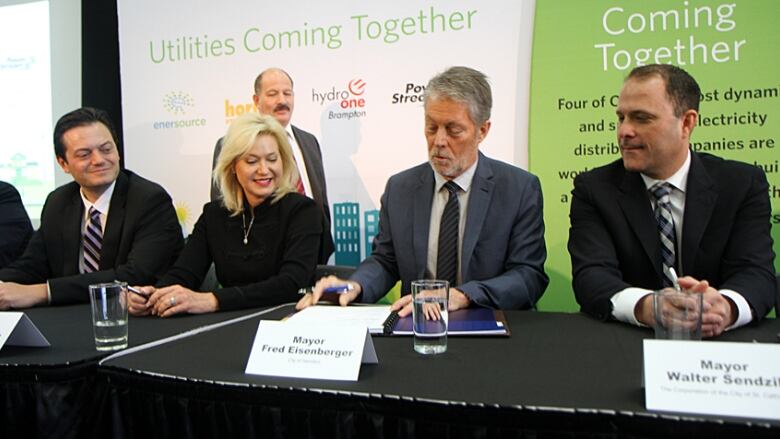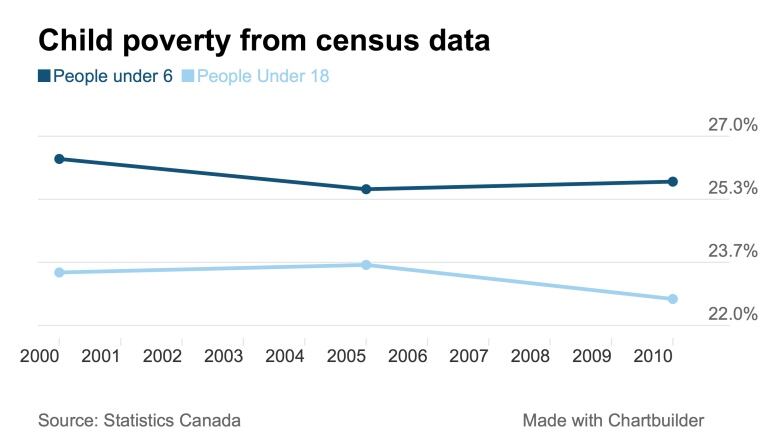City approves new $50M poverty plan - but is poverty the city's job?
Plan uses millions in expected dividends from a Horizon Utilities merger

The mayor's $50 million poverty reduction strategy is a go, but two Hamilton city councillors say it's "throwing money" at theproblem without concrete plans of how it will be spent.
City councillors approved Fred Eisenberger's poverty reduction strategy on Wednesday, a 10-year plan that relies on millions in increased dividends from a Horizon Utilities merger. As well, $20 million will go to affordable housing.
The mayor wants community groups to help develop exactly how the money will be spent, with a detailed plan due in October.
"Onein five kids in our community living below the poverty line is unacceptable," said Eisenberger, who cites rising rents, youth unemployment andlong waits forcity public housing and youth unemployment as reasons to act now.
But Donna Skelly, who represents Ward 7 on the Mountain, and Lloyd Ferguson, councillor for Ward 12 in Ancaster, didn't like spending that much money without knowing what the plan is first.
I've witnessed too many times around this council chamber where the solution is to throw money at it.- Coun. Lloyd Ferguson
And fixing poverty isn't even the city's job, Skelly said. With this method, "we'll be back here in five years" to spend even more money.
"This is not under municipal jurisdiction," she said. "This is not what we should be having to spend money on. This is a provincial matter."
Ferguson agreed.
"I've witnessed too many times around this council chamber where the solution is to throw money at it," he said. As for the dividend money, "here we are spending it all before one cent comes in the front door."
The $20 million will come from money the city would use to pay back its own Future Fund, which it depleted to pay its share for the new Tim Hortons Field Stadium.
Some of my motivation is having lived in poverty for most of my youth.- Mayor Fred Eisenberger
Horizon is also scheduled pending Ontario Energy Board approval to merge with three other utilities.
Right now, Hamilton gets about $8 million per year in Horizon dividends, the mayor says. The merger will boost that by as much as $5 million. Under the mayor's plan, the city will spend $3 million per year of that on poverty reduction.
Arlene VanderBeek, councillor for Ward 13 in Dundas, voted forthe plan, but wondered what happens if those estimates are off.
"If uplift to dividends doesn't come through, what happens then?"
In the end, the mayor's strategy passed 11-2. Many councillors spoke of their own experiences with poverty.
"Some of my motivation is having lived in poverty for most of my youth, in the McQuesten neighbourhood," Eisenberger said. "In the last 40 years, we haven't made a lot of traction on poverty. In fact, poverty has increased."
Community organizations packed the gallery to listen to the vote, which city council will ratify next Wednesday. That included Katherine Kalinowski, assistant executive director of Good Shepherd Centres.
"I shed my usual cynical self," she said, "and felt quite jubilant."
This isn't the first time the city has put effort into a 10-year poverty reduction strategy. In 2005, the Hamilton Roundtable for Poverty reduction set the goal of making Hamilton the best place to raise a child, and the city adopted it as part of its strategic plan.

But a review of that effort by CBC Hamiltonshows that the number of children living in poverty has remained relatively level over the years. In 2000, 23.3 per cent of people under 18 in Hamilton lived in poverty. That number dipped to 20.6 per cent in 2010, but rose back to 22.7 per cent in 2013. Many of the other key measurements also showed little progress.
Statistics also show that the need for school nutrition programs is growing, as is the number of families with a new baby considered to be at risk for developmental challenges.
Who was in favour of the plan:
Aidan Johnson (Ward 1), Jason Farr (2), Sam Merulla (4), Chad Collins (5), Tom Jackson (6), Terry Whitehead (8), Doug Conley(9), Maria Pearson (10), Arlene VanderBeek (13), Rob Pasuta (14), Mayor Fred Eisenberger
Who was opposed:
Donna Skelly (7), Lloyd Ferguson (12)
Absent:
Matthew Green (3), Judi Partridge (15)












_(720p).jpg)


 OFFICIAL HD MUSIC VIDEO.jpg)
.jpg)



























































































